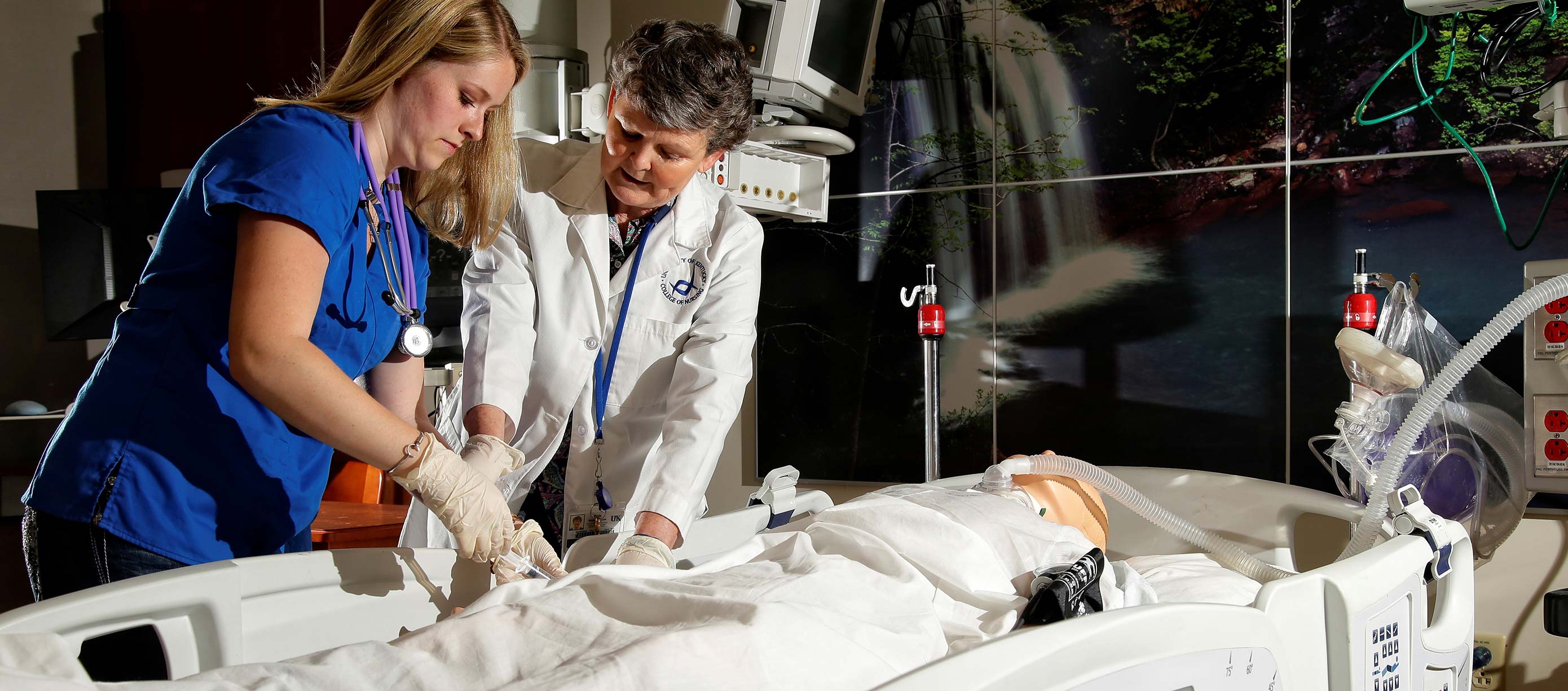Not everyone starts their nursing career from the same point. The Accelerated Nursing program accounts for this and builds upon your previous knowledge, allowing you to excel in the nursing field. Whether you studied a different major in college, served as a medic in the military, or currently hold your LPN license, the Accelerated Nursing program takes you all the way to earning your RN in just 16 months.
Designed for diligent individuals to quickly obtain their RN credential, the University of Kentucky’s ABSN program offers a curriculum that expands on your previous education and prepares you for a valuable role in nursing through academic success and clinical experience. Furthermore, the ABSN program offers enhanced flexibility with online lectures and two clinical locations.
How is the ABSN different from a traditional BSN program?
Although the ABSN and BSN share the same ultimate goal of becoming an RN, the program breadth is different. The ABSN is designed for individuals who hold a non-nursing bachelor’s degree or already have medical experience as a medic in the military or as an LPN. These experiences are what allow the 16-month condensed curriculum because it builds on a foundation of prior knowledge. On the other hand, the traditional BSN program takes students with no prior college education or specific training and typically takes four years to complete.
Is ABSN right for me?
The program is created for individuals who are ready to commit full-time in a fast-paced environment and are passionate about healthcare. If you are looking to become a registered nurse within 16 months, the ABSN program provides a worthwhile and efficient route that builds on your previous education and prepares you for long-term success in the nursing profession.
How long is the ABSN program?
The University of Kentucky’s ABSN program takes 16 months to complete with a total of 54-55 credits. The program includes online lectures, face-to-face laboratories, and clinicals. Graduates are eligible to take the Registered Nurse licensure exam (NCLEX) after the completion of the program.
Is an ABSN degree worth it?
The ABSN degree is beneficial for several reasons:
- Timely career transition
- Career advancement
- High industry demand
- Enhanced earning potential
- Program flexibility for working students
The average salary for nursing professionals with a BSN degree is $93,600 per year as of 2024 (Bureau of Labor Statistics). In comparison to the salary of licensed practical and vocational nurses with a median pay of $62,340 per year, nursing professionals with a bachelor’s degree earn significantly more, underlining the economic benefits of pursuing a higher level of education in the nursing field (Bureau of Labor Statistics). With the ongoing demand for healthcare workers and the versatility of nursing roles, the job outlook for registered nurses continues to increase.
Is the ABSN program hard?
Yes, the ABSN program can be considered challenging because it condenses a traditional four-year nursing degree into a 16-month timeframe. The expectations for ABSN can be intensive:
- Accelerated speed: Students must learn and retain material quickly within a compressed timeframe
- Complex curriculum: courses cover challenging subjects such as clinical care, pharmacology, and anatomy
- Demanding schedule: heavy workload and long hours of studying, lab assessments, and clinicals
- High expectations: Educational performance and self-discipline are expected for both academic and clinical settings
The program requires students to be committed to balancing deadlines that include intensive coursework, hands-on clinical training, and dedicated study time. Despite its challenges, the ABSN program offers numerous fulfilling opportunities for individuals who remain focused, well-prepared, and actively engaged. With strong study habits and effective time management, students can complete the ABSN program and achieve their goal of becoming a registered nurse.
After program completion, can I practice outside of Kentucky?
Individuals are responsible for understanding and meeting the licensure requirements of the state they plan to practice in before completing the ABSN program. Please use the Licensure Map provided by UK as a reference.




